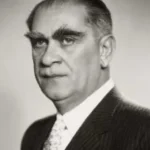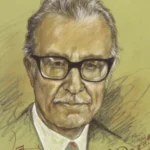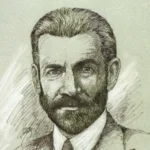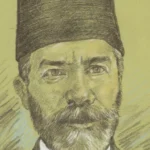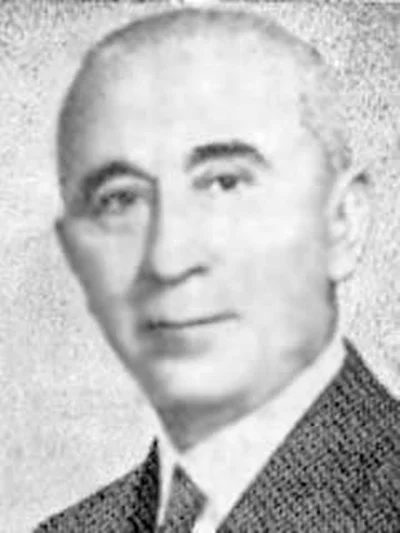
Dr. Osman Şükrü Şenozan was born in 1874 in Süleymaniye, Istanbul. He was the son of Ali Osman Efendi, the Chief of the Watchmen. After completing his secondary education at Şehzadebaşı Rüştiye and İdadi, he graduated from Istanbul Faculty of Medicine. He specialized in internal medicine. He served as a municipal doctor in Midilli (Lesbos) and Muğla, and worked as an internal medicine specialist at the İzmir Public Hospital.
He served as a colonel doctor during the National Struggle and earned the admiration and appreciation of Atatürk. He held the position of Director of Health in İzmir for 17 years, up until the Greek occupation. Until 1922, he also served as Director of Public Health at the Ministry of Health.
He entered the Parliament as a 5th Term Member of Parliament representing Kastamonu. Afterwards, he continued his life working as a doctor.
He developed an interest in music at a young age and benefited from the teachings of renowned masters. He studied under Zekâi Dede, Zekâi Dede’s son Ahmet Irsoy, Enderûni Ali Bey, and Santo Şikâri from İzmir. He formed close friendships with two of the leading composers of the time, Dr. Suphi Ezgi and lawyer Hüseyin Sadettin Arel. He was also a ney player.
He passed away in July 1954 at the age of 80 and was buried in the Edirnekapı Martyrs' Cemetery. Upon his death, composer Dr. Cahid Öney composed the following chronogra:
Şenozan was fire in the ney, with goblets kissed in melody…’”
Dr. Şükrü Şenozan began composing at the age of 19. He completed his first song with the lyrics “Gözüm hicrinle kan ağlar” in 1893. Although he produced a limited number of valuable works, his sûznâk song with the lyrics “Muptelâyı derd olan diller devâdan geçtiler” composed in the devrihindi rhythmic pattern, became very famous.
A significant portion of his works is included in the TRT repertoire. His other known works are as follows:
- Atatürk Marşı (Nûr Elinle Yükseldi Şanlı Hilâl)
- Atatürk Marşı/Buselik Sofyan usulünde (Ey Güneşin Yer Yüzündeki Eşi) Güfte, bestekârın kendisinindir.
- Buselik/Düyek Güfte Fuat Hulus Demirelli (Gönül Harareti Sönmez Șarab-ı Kevserle)
- Evimizin Marşı (Coşmuş Yine Yürekler)
- Hüseynî/Sofyân/ Güfte: Hasan Ali Yücel (Dıştan Viran Bağlıyım)
- Hüzzâm/Sengin Semâî/ Güfte: Faruk Nafiz Çamlıbel (Gülmezse Yüzün Goncaların Kalbi Kan Ağlar)
- Mâhûr/Düyek Güfte Ömer R. Gökçe (Bu Sevda Ne Tatlı, Ne Tatlı Yalan)
- Mâhûr/Aksak Semâî (Reftâr-ı Nâz-ı Cünbüşe Girdi)
- Mâhûr/Düyek (Gûş-i Cânâ Geldi Bir Yerden Sensin)
- Mâhûr/Yürük Semâî (Geçti Hayal İçinde Bunca Yıl Bir Gün Gibi)
- Müstear/Devr-i hindi (Mâh-tâbım Nûrunu Göster Karanlık Bağrıma)
- Neveser /Yürük Semâî (Köpürsün Bâdeler, Taşsın Dökülsün Neş’eler)
- Segâh/Müsemmen/Güfte:Hasan Ali Yücel (Gözlerinden İçti Gönlüm)
- Sûznâk/Devr-i hindi/ Güfte: Fâik Âli (Ömrümün Sendin Mahremi)
- Sûznâk/Yürük Semâî (Gel İnan, Gel Erganûn-u Aşkımı Sensin Çalan)

